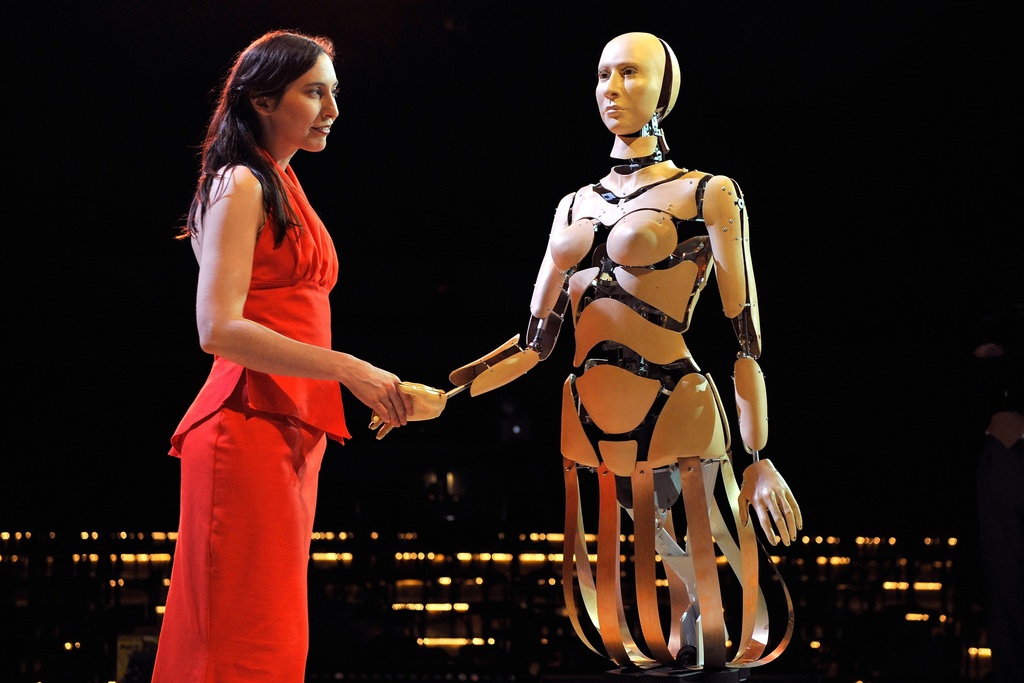Gender gap in science remains substantial

Women are still poorly represented in leading positions in science research and academia in Switzerland, the latest figures published by the European Commission show. For example, women account for only one in four Swiss professors.
The She Figures 2012Gender in Research and Innovation report covers the evolution of women’s careers in the 27 European Union countries plus Croatia, Iceland, Israel, Norway, Switzerland and Turkey.
One of the features of the European labour market in the past decade has been increasing female representation in third level education. This trend is also established in Switzerland, where in 2010 the number of male and female students entering tertiary education was more or less equal. More women graduated the same year with Bachelors or Masters – 52 per cent, against a European average of 59 per cent.
But the higher up the ladder you go, the fewer women there are. Men outnumbered women among PhD students and graduates: 58 per cent to 42 per cent in 2010.
When it comes to professorship the gap is much wider – just 26 per cent of professors in Swiss universities were women. However this is above the European average of 20 per cent.
Although the number of female researchers is growing – up 4.6 per cent per year between 2004 and 2008 – women still occupy only 30 per cent of research positions in the science sector.
The report also shows higher success rates for men in obtaining research funding – a gap that widened in favour of male applicants in Switzerland between 2002 and 2008 – and asks whether there may be a link to the fact that women are under-represented at the highest decision-making levels.
“Regretful”
In Switzerland institutions which are active in science are mainly led by men. In the university and applied university sector just 16 per cent of such institutions are headed by women.
In most EU countries, gender differences stand out more in the field of science and engineering. On average 32 per cent of scientists and engineers were women in the EU. Switzerland is at the very bottom of the country ranking with just 18 per cent of women in this category.
“I must say that the analyses presented show that we are far from achieving gender equality in research. This is regretful for women researchers and bad for Europe,” European Commissioner for Research, Innovation and Science, Máire Geoghegan-Quinn writes in the foreword of the report.
The report casts doubt on the hypothesis that women would automatically catch up with their male counterparts.
“Although the situation appears more favourable for the youngest generations of female academics in a subset of countries, the gender gap is still disproportionately high compared with the increase in the proportion of women students,” it notes.

More
Science is still a final frontier for women
“Maternal wall”
There is not just a glass ceiling but also a “maternal wall” hindering the career of female researchers, the report concludes.
“Although work-life and work-family balance, in principle, concern both female and male scientists and researchers, women are usually more affected given that they still carry the main burden of care and domestic work.”
Apart from general policies affecting women’s entry into the labour market and their employment conditions, policies specifically targeted at research organisations are needed to support women in their career advancement, the report argues.
In some countries, policies to balance out the unequal situation that continues to prevail in the academic sector include gender-mixed composition of nominating commissions, an increase in the objectivity of the applied selection criteria, the tutoring of women, and the fixing of quotas.
“There is no evidence of spontaneous reduction of gender inequality over time. All these policies, and many more, are needed to ensure that constant progress is made towards gender-equality in research and scientific careers,” the report notes.

In compliance with the JTI standards
More: SWI swissinfo.ch certified by the Journalism Trust Initiative









You can find an overview of ongoing debates with our journalists here . Please join us!
If you want to start a conversation about a topic raised in this article or want to report factual errors, email us at english@swissinfo.ch.